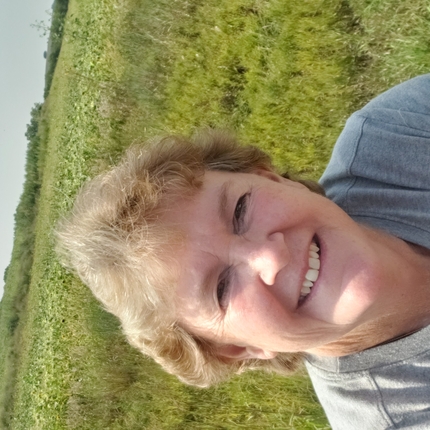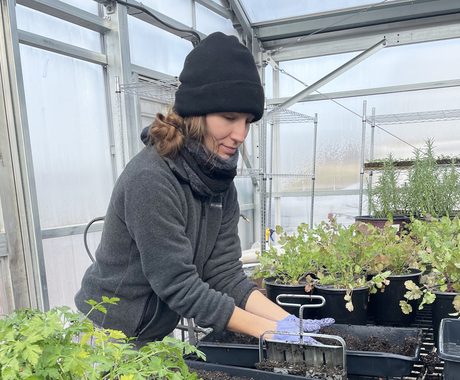Growing up, Teresa Otte didn’t always enjoy working on her family’s farm near David City, Nebraska.
But as the farm evolved, so did her interest and dedication. What started as an 80-acre farm in 1980 has grown into a 1,200-acre corn and soybean operation, with Teresa implementing numerous conservation practices along the way.
Now, Teresa is ready to help other producers experience the same evolution as part of the Center for Rural Affairs’ Conservation Mentorship Network. The Center has recruited mentors like Teresa from across the state to assist with network discussions and activities. The goal is to build peer-to-peer relationships among Nebraska’s farmers and ranchers that foster learning, advance the adoption of conservation practices, and alleviate risk while maintaining viable agricultural operations that support families and rural communities.
An early adopter of conservation, Teresa began using reduced tillage 20 years ago and after acquiring an upgraded planter, transitioned to no-till because it required fewer passes through the field and less equipment, saving the operation time and money. The practice also solved another dilemma.
“Going no-till was a necessity,” she said. “I couldn't find enough help to till all those acres.”
The initial benefits she experienced led to Teresa’s involvement in the Conservation Stewardship Program (CSP), which is administered by the U.S. Department of Agriculture’s Natural Resources Conservation Service. Through CSP, she learned about and implemented multiple practices to benefit her operation and local wildlife.
Among the practices she has adopted are the planting of cover crops and pollinator habitats. Cover crops are used between harvest and the spring planting season to armor the soil against extreme weather by creating a stable soil structure that is resistant to erosion from heavy rain and severe drought. Pollinator habitats provide vital resources for beneficial insects such as bees and butterflies.
Teresa also has land enrolled in the Conservation Reserve Program and is working with Pheasants Forever to plant additional native habitat.
Over the years, Teresa has witnessed the numerous advantages associated with implementing conservation practices. Two of the greatest benefits have been reduced water, soil, and nutrient runoff from her fields and an increase in the soil’s water-holding capacity, which was made clear during the 2023 drought when one of her irrigation pivots broke and couldn’t be fixed for a month. Despite the setback, Teresa’s use of no-till and cover crops proved beneficial, allowing the soil to capture and hold enough rainfall to carry the field through to harvest. Ultimately, the amount of bushels produced was the same as a fully irrigated field across the road that did not use the same conservation practices.
Teresa acknowledges that her success did not come without trial and error, which is why she wanted to join the Center’s Conservation Mentorship Network as a mentor.
“With cover crops and no-till, sometimes you get hung up and just need someone to talk to [who can] help you figure things out,” she said “If I can encourage anyone to participate and get back to a little more conservation, it's going to be good for everyone. It means cleaner water and more productive soil that benefit rural communities.”
To connect with Teresa or learn more about participating in the Conservation Mentorship Network, email [email protected] or call 402.590.7096.




